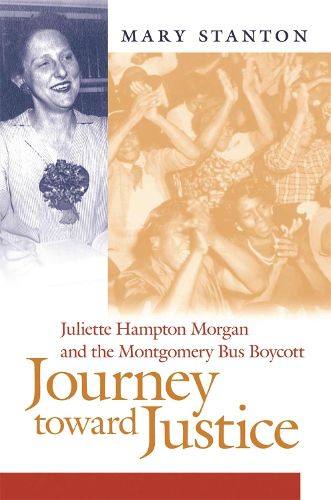Readings Newsletter
Become a Readings Member to make your shopping experience even easier.
Sign in or sign up for free!
You’re not far away from qualifying for FREE standard shipping within Australia
You’ve qualified for FREE standard shipping within Australia
The cart is loading…






About a week after the [Montgomery Bus Boycott] started a white woman who understood and sympathized with the Negroes' efforts wrote a letter to the editor . . . comparing the bus protest with the Gandhian movement in India. Miss Juliette Morgan, sensitive and frail, did not long survive the rejection and condemnation of the white community, but before she died in the summer of 1957 the name of Mahatma Gandhi was well-known in Montgomery.-Martin Luther King Jr., from Stride toward Freedom
From 1936 to 1957 in letters published in Alabama's major daily newspapers as well as in essays and private correspondence, Juliette Hampton Morgan made some of the most insightful observations on record about Montgomery's racial crises. Mary Stanton traces the development of Morgan's moral conscience amid details about her childhood, her education, and her family, which included a politically ambitious father and a strong-willed mother and grandmother.
Morgan backed her words with action. As a New Deal Democrat, she worked to abolish the poll tax and establish a federal antilynching law. She rarely hesitated to appear in integrated settings, and years before the 1955 Montgomery Bus Boycott, she was regularly confronting bus drivers over their mistreatment of black riders. Morgan's letters had consequences: she and the newspapers that published them were vilified and threatened. Although the trustees of the Montgomery Public Library, where Morgan worked, resisted pressure to fire her, a cross was burned in her yard, and friends, neighbors, former students, and colleagues shunned her.
This biography, which acknowledges the vital work of a civil rights advocate at the local level, demonstrates the costs of speaking out in a highly conformist society. Morgan took her own life at age forty-three. No one who reads her story can easily dismiss the effects of the rebukes and isolation she endured because of her stand against racism.
$9.00 standard shipping within Australia
FREE standard shipping within Australia for orders over $100.00
Express & International shipping calculated at checkout
About a week after the [Montgomery Bus Boycott] started a white woman who understood and sympathized with the Negroes' efforts wrote a letter to the editor . . . comparing the bus protest with the Gandhian movement in India. Miss Juliette Morgan, sensitive and frail, did not long survive the rejection and condemnation of the white community, but before she died in the summer of 1957 the name of Mahatma Gandhi was well-known in Montgomery.-Martin Luther King Jr., from Stride toward Freedom
From 1936 to 1957 in letters published in Alabama's major daily newspapers as well as in essays and private correspondence, Juliette Hampton Morgan made some of the most insightful observations on record about Montgomery's racial crises. Mary Stanton traces the development of Morgan's moral conscience amid details about her childhood, her education, and her family, which included a politically ambitious father and a strong-willed mother and grandmother.
Morgan backed her words with action. As a New Deal Democrat, she worked to abolish the poll tax and establish a federal antilynching law. She rarely hesitated to appear in integrated settings, and years before the 1955 Montgomery Bus Boycott, she was regularly confronting bus drivers over their mistreatment of black riders. Morgan's letters had consequences: she and the newspapers that published them were vilified and threatened. Although the trustees of the Montgomery Public Library, where Morgan worked, resisted pressure to fire her, a cross was burned in her yard, and friends, neighbors, former students, and colleagues shunned her.
This biography, which acknowledges the vital work of a civil rights advocate at the local level, demonstrates the costs of speaking out in a highly conformist society. Morgan took her own life at age forty-three. No one who reads her story can easily dismiss the effects of the rebukes and isolation she endured because of her stand against racism.